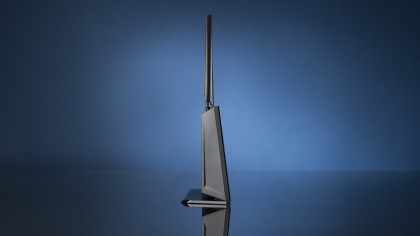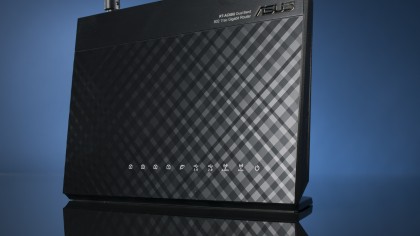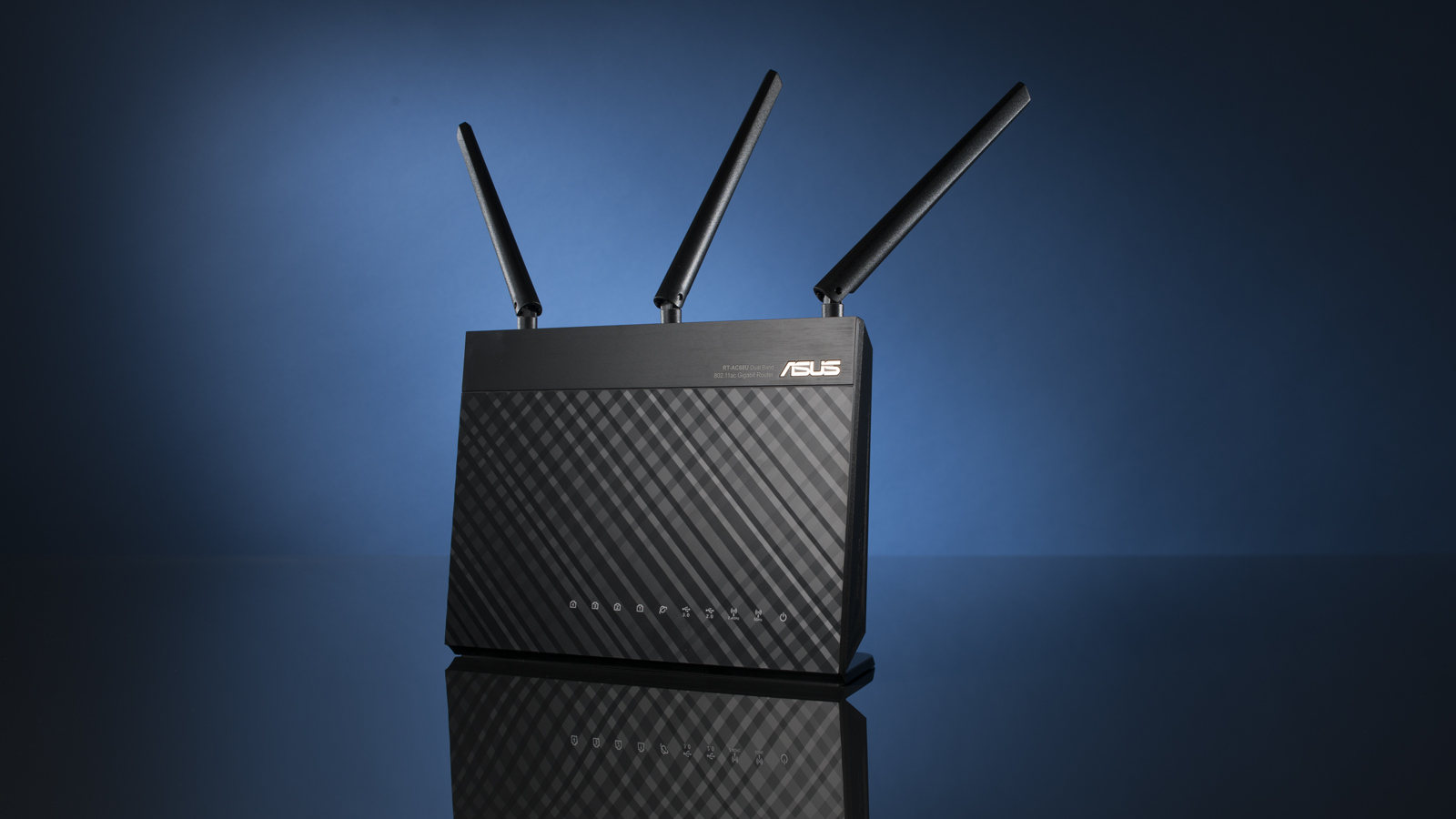Why you can trust TechRadar
The RT-AC68U's performance is well-documented, but the performance boost I saw over my previous everyday router – Linksys's E3200 – still surprised me. In scientific terms, I would call this device hella fast.
A testament to Broadcom's new BCM4709 chipset is that the router actually shaved 32 seconds off of my Ethernet-connected download times over Gigabit Ethernet. The notion that you could move 1GB of data in just over a minute is remarkable.
[Editor's Note: For all file transfers, we used a 1GB directory filled with 690 MP3 files in a two-story private home in a moderately dense urban environment. The file transfers occurred over a Windows homegroup between a plugged-in PC and an 802.11n- and 802.11ac equipped laptop at default router settings.]
Benchmarks
802.11n 2.4 GHz frequency
- 10-foot distance: 28 MBps
- 20-foot distance (2 walls): 22 MBps
- 40-foot distance (4 walls): 17 MBps
802.11n 5.0GHz frequency
- 10-foot distance: 24 MBps
- 25-foot distance (2 walls): 19 MBps
- 50-foot distance (4 walls): 11 MBps
802.11ac 5.0GHz performance
- 10-foot distance: 63 MBps
- 25-foot distance (2 walls): 34 MBps
- 50-foot distance (4 walls): 17 MBps
When we dialed up an 802.11ac connection, the numbers became outright shocking – it took just a few seconds slower to transfer our 1GB test directory than a plugged-in Gigabit Ethernet connection. The future of networking technology has apparently arrived.
Sign up to the TechRadar Pro newsletter to get all the top news, opinion, features and guidance your business needs to succeed!

It is worth noting that these numbers go way beyond most routers at much greater distances. As an example, the aforementioned E3200 was only capable of putting out 5-6MBps on the 2.4GHz frequency at my outermost distance, and was not nearly as consistent over time.
The other aspect of performance is reliability, which can be a fairly binary proposition, even if external factors – like cable modems and service quality – are in play. I'm happy to report that after several weeks of testing, the RT-AC68U didn't require a single reset.
We liked
If routers aren't fast, they're slow. This device is the former, delivering extremely high data rates at both short and long range, across all channels.
I also liked the ability to set up two main Wi-Fi accounts on each frequency as well as a whopping 3 separate public/guest networks on each band as well. The ability to plug in two separate Internet modems is also a nice touch for power users.
Honestly, most people won't utilize any of these extra features. These users can still take great solace in the fact that at the time of testing, this is one of the fastest home routers on the planet.

We disliked
The only thing I'm not a fan of is the price. At $200 (about £118, AU$215), the RT-AC68U costs a pretty penny. It's literally double the cost of high-end 802.11n routers, like Asus's RT-N56U. This said, it only costs a touch more than the comparable (if slightly inferior) NetGear R7000 Nighthawk 802.11ac dual-band device.
Final verdict
The Asus RT-AC68U Dual-Band Wireless AC1900 Gigabit Router is the rare electronic device that does everything, and makes no compromises. If you want speed, forward-thinking 802.11ac capabilities, and versatility, you need look no further.
You'll pay for the privilege of faster throughput and increased range, but this router is about as future-proof as they come, and easily will offer a 3 to 4-year lifespan in any home.
